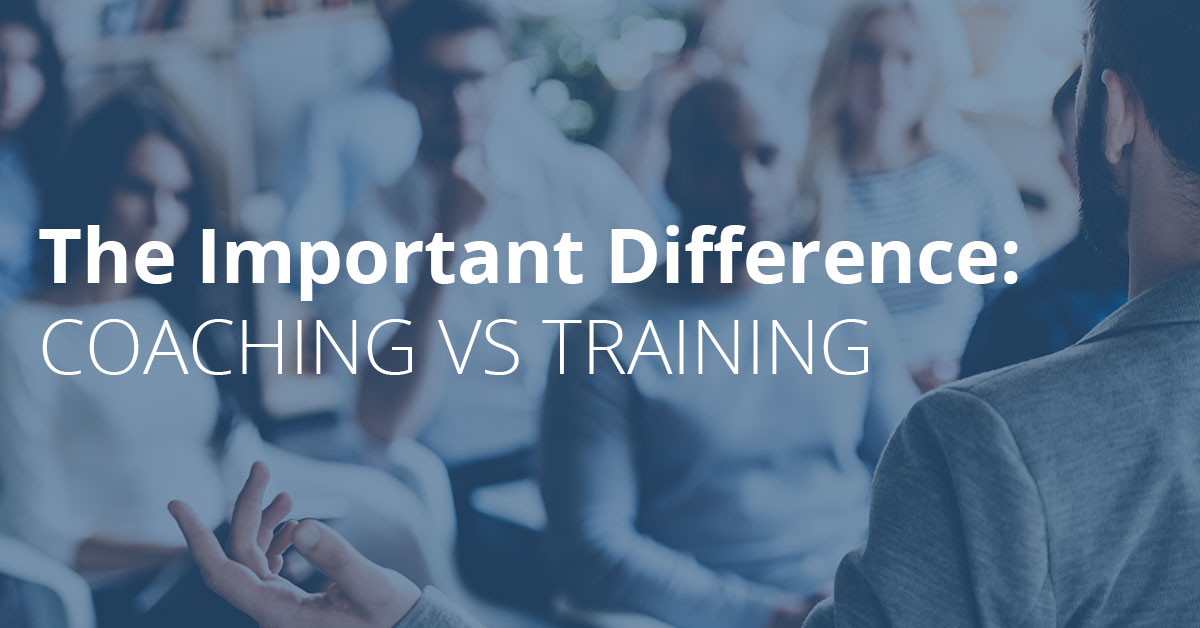What is real estate training?
Real estate training refers to structured educational programs and workshops designed to equip professionals with the skills, knowledge, and strategies necessary to succeed in the real estate industry. This includes pre-licensing education, ongoing development, and specific instructional sessions that support new and experienced agents alike. Real estate training focuses on teaching practical skills and industry requirements to help agents operate effectively and grow their businesses.
How is Real Estate Training Different from Real Estate Coaching?
You have probably heard about the importance of real estate training, but what about real estate coaching?
Many people use these terms interchangeably, but they are not the same. In fact, the difference can directly affect your performance, confidence, and overall business success.
Here is what you need to know.
Real Estate Training
Real estate training includes the courses, events, and instructional content designed to teach agents how to complete specific tasks, navigate new systems, or meet regulatory requirements. These sessions typically focus on teaching methods and providing information to meet a defined learning outcome.
Key topics in real estate training include:
- Licensing and compliance requirements
- Sales techniques and lead generation strategies
- Effective marketing and branding approaches
- Client communication and service excellence
- Real estate technology and software platforms
- Pricing, market research, and valuation
- Understanding contracts, disclosures, and legal updates
Real estate training is typically delivered in a group setting or through an online platform. It is especially useful when your association or brokerage rolls out a new contract form, your MLS introduces new software, or the law requires updated licensing education.
Fundamentals of real estate training:
- Group-based instruction or classroom settings
- Focuses on specific learning outcomes
- Uses structured teaching models
- Provides information and instruction
- Includes low to no accountability
Real estate training is often the first step in an agent’s career and continues throughout their professional journey as new tools, laws, and practices emerge.
Real Estate Coaching
Real estate coaching is a more personalized and strategic form of support. While training teaches you how to complete specific tasks, coaching helps you improve your mindset, performance, and business growth through accountability and tailored advice.
A coach works closely with you to set and reach personal and professional goals. The focus is on improving behaviors, decision-making, and long-term outcomes.
Topics covered in real estate coaching:
- Lead conversion and client relationship strategies
- Time management and productivity systems
- Sales skills and objection handling
- Marketing strategy and brand development
- Team building and business scaling
- Financial planning and business operations
Real estate coaching is often delivered through one-on-one sessions, group masterminds, or immersive events. The best real estate coaches provide both accountability and insight, helping agents overcome limiting beliefs and unlock higher performance.
Fundamentals of real estate coaching:
- One-on-one personalized guidance
- Focuses on behavior, growth, and performance
- Encourages critical thinking and decision-making
- Uses questions to uncover obstacles and opportunities
- Includes high levels of accountability
If training is the classroom, coaching is the personal trainer. Both are important, but they serve different purposes and offer different benefits.
Real Estate Coaching vs. Real Estate Training
There is certainly overlap between coaching and training. Both are essential to long-term growth, and they can work together to provide a full development plan for real estate professionals.
However, training is event-based and focused on specific knowledge, while coaching is ongoing and built around strategic business growth. When you understand the difference, you can create a plan that includes both for optimal success.
Your Success Plan
Ask yourself:
- Do I have a clear training plan to stay current on industry tools and laws?
- Am I working with a coach who understands my goals and helps me stay accountable?
- Do I have a balance of practical skills and strategic growth?
Whether you are new to the industry or a seasoned agent ready to level up, you will benefit most from combining the tactical benefits of real estate training with the personalized strategy of real estate coaching. Make this the year you invest in your full potential.
Would you like help developing your training and coaching plan? Explore our real estate coaching programs and see how they align with your business goals.






